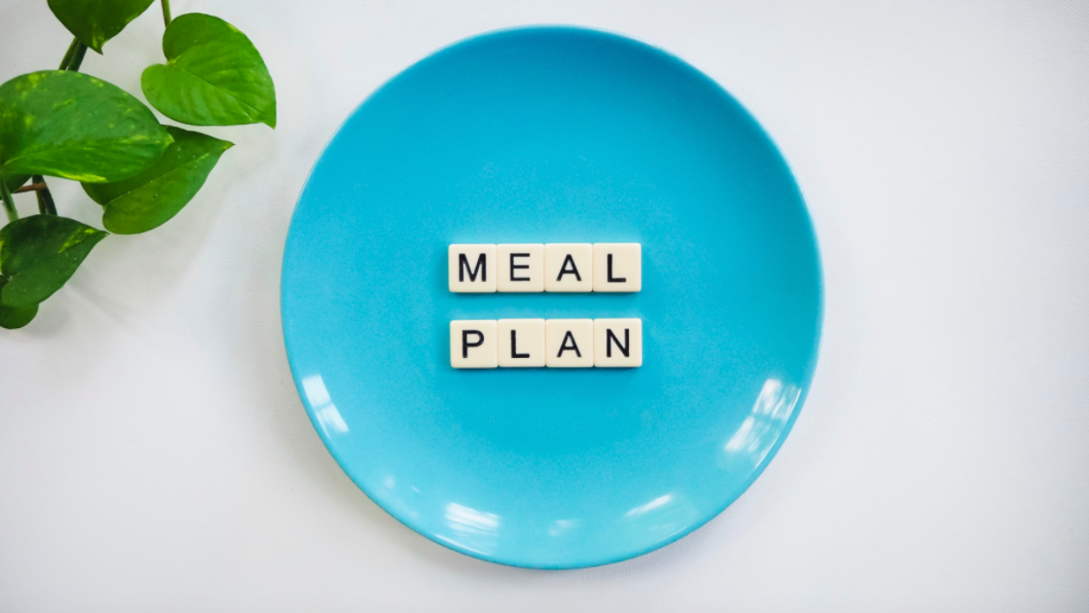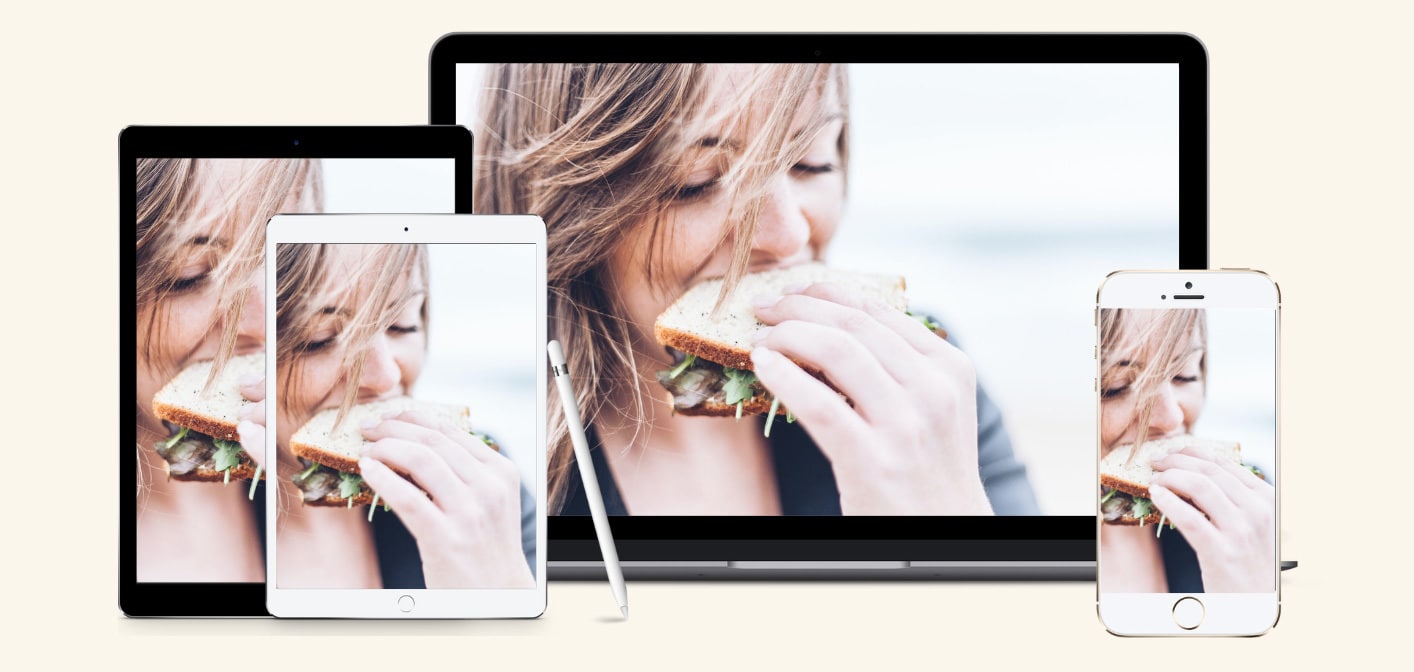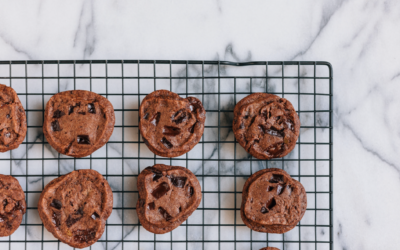Nutrition Plan: The Pros & Cons of Following One
Are you in search of the next nutrition plan or diet plan that’s really going to “work” for you. Maybe you’re even committed to finding a nutrition plan that’s more tailored and personalised to your needs.
But I am going to take a guess that you’ve done this before.
Am I right?
If you’re constantly “on” or “off” of something, or just generally “worried” about whether you’re eating right, you’ve come to the right place.
In this article, I am going to explain what a nutrition plan or diet plan is, the pros and cons of following one, and offer up an alternative.

First of all, what is a diet plan or nutrition plan?
In this context, I am referring to a structured set of guidelines that tells you what, when and how much to eat. It might be rigid, or allow a lot of flexibility. They are usually used for the purpose of pursuing health, for weight loss, or other body goals.
Examples of rules included in a nutrition plan might be:
- Have protein at EVERY meal and snack
- Drink water, X Litres a day minimum
- Every meal must be balanced
- Always include X pieces of fruit a day
There are also examples of more extreme rigid plans. For example, a Keto Diet Plan, 21 day fix meal plan, intermittent fasting plan, dash diet plan.
Why am I qualified to talk about this?
As a Registered Dietitian having worked in the NHS and in private practice, I have a wealth or experience. I’ve also navigated my own way out of a tricky relationship with food. I therefore, have first hand experience. I’ve worked in settings where I have delivered personalised, tailored, and flexible meal plans, gentle nutrition guidance and education. On the flip side, I have helped people cultivate more of a trusting relationship with food and their body, well away from meal plans and rules. So here’s what I have learnt.
The pros of following a nutrition plan or diet plan
- A quick fix: Nutrition plans can initially offer something to follow, a sense of purpose, and can take the “planning” element away. For this reason, a nutrition plan might free up some time initially too.
- Education: A nutrition plan, if balanced, might be able to offer some nutritional knowledge, Also, provide an outline of what a balanced healthy diet might look like.
- Disease or chronic illness: In some circumstances (like for those on dialysis for kidney failure, with PCOS, diabetes) nutrition education can be very helpful. It can even be life saving when delivered in the right way.
- Eating disorder recovery: In eating disorder recovery, some gentle nutrition structure from a trained practitioner can be very helpful. When the body is underfed, depleted, and/or eating is chaotic, some gentle nutrition guidance can be offered to normalise eating. This needs to be delivered by a specialist eating disorder dietitian or healthcare practitioner.

The cons of following a nutrition plan or diet plan
- Short lived: In my experience, many people find themselves on and off of them. They tend to be short lived, and many people find it unenjoyable, unsustainable and inflexible. As humans, we’re generally not well suited to stick to rules!
- Do not allow for spontaneity: What if you just fancy a bowl or cheesy pasta? Or you go to someone’s house and they cook something that doesn’t fit with the plan. Following a nutrition plan can induce guilt and anxiety, and not allow for spontaneity of life events.
- Offer something to fall off of: Nutrition plans offer something to step onto, and then fall off. This can induce black and white thinking around food, and the sense of being an “all or nothing”.
- Induce rebellion eating: This is the voice that comes in when you fall off the nutrition plan, or eat outside of the guidelines. The voice that says “you can’t tell me what to eat” or “I can eat because I want to voice“. It’s usually not attuned to hunger and fullness, and is quite intense, rebellious and not satisfying. Because it’s usually about making a statement.
- Result in the sod it mentality: When you have one biscuit and think ‘”sod it, that’s me ruined for the day”. Dieters tend to evaluate their successes or failures of eating in terms of the current day. Even just thinking that you have blown your diet plan or nutrition plan is enough to trigger eating more, regardless of hunger or fullness levels.
- Inflexible and don’t account for varying needs of the body: Just like our emotional needs very day to day, our hunger levels, and what brings us joy, pleasure does too. There is no such a thing as perfect.
- The irony of thought suppression: Don’t think of a pink elephant…. you thought of a pink elephant right? This is exactly what happens when we try to not eat something because we’ve been told not to. A large body of research indicates that thought suppression is ineffective.
- The last supper effect: For many, just the anticipation of starting a new diet is enough to trigger overeating. A study on chocolate lovers found that when chocolate restriction was imposed for 3 weeks, it triggered an increase in the amount of chocolate eaten both before and after the restrictive period.
- The forbidden fruit effect: A large body of research on children has identified that when we tell them not to eat that specific food (red M&Ms for example), the red M&Ms received the most attention and consumption. The same goes when you tell the children not to eat fruit… This means it’s not just an effect that is related to high fat and high sugar foods. It’s the forbidden factor that drives the want to eat the food.
- Overeating: Restrained eaters are more likely to overeat, at just the perceptions of breaking a food rule. Studies have identified that the mere perception of blowing the diet or falling off the plan, was enough to trigger overeating.
- They can offer a false sense of hope: Nutrition plans give off the idea that there is a “perfect” or “right” way to eat. In reality, there is no such a thing as a perfect diet.
If nutrition plans aren’t serving me, what’s an alternative?
It can seem attractive to be told via a nutrition plan, what to eat, how much to eat, and when to eat, especially when you’re feeling out of control around food. I totally see the attraction of gaining a quick sense of control.
The thing is, being given more rules, and more things to follow, can actually exacerbate these issues in the long term. Many people that I work with don’t need more nutrition knowledge. In fact, they have a wealth of it. Maybe even too much, so much so, that it’s having a detrimental effect.
They need a different approach, and that’s what Intuitive Eating or non-diet support can offer.
Non-diet approaches teach people to become more connected with their body, and become the boss of themself. This means, never need to rely on a meal plan again. Sounds exciting right?
Now this doesn’t mean letting go of all planning per se. Of course, a basic part of self-care is having food available at home to honour your needs as and when. But there is a difference between having a variety of meal options available to honour your needs, versus being strict around what you can eat, and when, without flexibility and spontaneity.

So what’s the verdict?
In my experience, and from the research, nutrition plans and diet plans can do more long term damage than good. Especially in those that struggle with binge eating, secret eating, food obsession, and disconnected eating. They can result in a lack of body trust, and lack of ability to honour and respond to natural signals like hunger, fullness, satiety and satisfaction. Nutrition plans may be the very thing that exacerbated or even started these difficulties.
If you’ve been chronically dieting, or trying to pursue thinness or weight loss in some form, even the best, most flexible and gentle nutrition guidelines can still be embraced like a diet. Be mindful of what you read on the internet. It might be time to try something new! There is certainly a place for gentle nutrition planning. It’s a basic form of self-care to have food available to you day to day. However, nutrition and diet plans tend to be more rigid, less flexible, and aim to keep you in a calorie/macro framework, and this is where trouble can occur.
If you’re wanting to find out more about building more body trust and becoming the boss of yourself, without relying on nutrition plans, my 7-Steps to Food Peace & Food Freedom audio guide and workbook, might be a good place to start.





